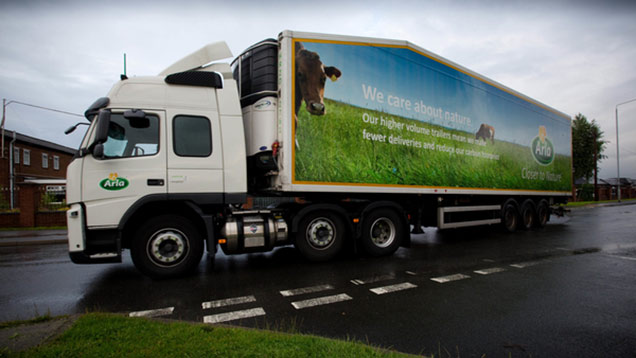Dairy co-op Arla rides tough 2015 with rising profits
 ©Tim Scrivener
©Tim Scrivener Dairy co-op Arla saw sales and profits surge in 2014, despite markets crashing since the summer.
Pre-tax profit rose 6.4% to €314m (£233m), while revenues were up 7.5% at €10.6bn (£7.9bn).
The business, part-owned by 3,000 British farmers, processed 11,738m kilogrammes of members’ milk in 2014 – 24% more than the previous year.
World dairy prices hit record highs last February, before high supplies and dwindling demand caused market indicators to plunge more than 50%.
See also: Dairy farmers still optimistic after brutal 2014
The co-op’s CEO Peder Tuborgh said difficult trading conditions and the Russian ban on EU food imports were making it tough for farmers.
But he said the business was trying to minimise the effects by sticking to the strategy of growing outside Europe while strengthening its position in core, continental markets.
“In a roller-coaster year for the global dairy industry, Arla’s strong brands and focus on efficiency and cost control enabled us to make the most of the upturn and to be competitive through the downturn,” Mr Tuborgh said.
Arla has publicly said it is pushing as much milk as possible out of volatile commodities and into added-valued brands.
Sales of the co-op’s global brands Arla, Lurpak and Castello rose 2.1% by volume last year.
The company claims it is ready to move another 500m kilogrammes of milk into higher value areas in 2015.
Arla’s so-called “performance price” – how much money it makes from a kilogramme of milk – rose from 41c/kg (30.3p/kg) in 2013 to 41.7c/kg (30.8p/kg) last year.
Looking ahead, Arla would not reveal forecast revenues for 2015, with markets still uncertain.
“The global dairy industry has never been as unpredictable as it is now, but we believe that our strategy is the right one to take us forward,” Mr Tuborgh said.
“We continue to rigidly streamline and control costs, while investing significant sums in marketing and new products.”
Last year Arla merged with a smaller European co-op to take its total farmer membership to 13,500 across seven countries: UK, Sweden, Denmark, Germany, Belgium, Luxembourg and the Netherlands.
